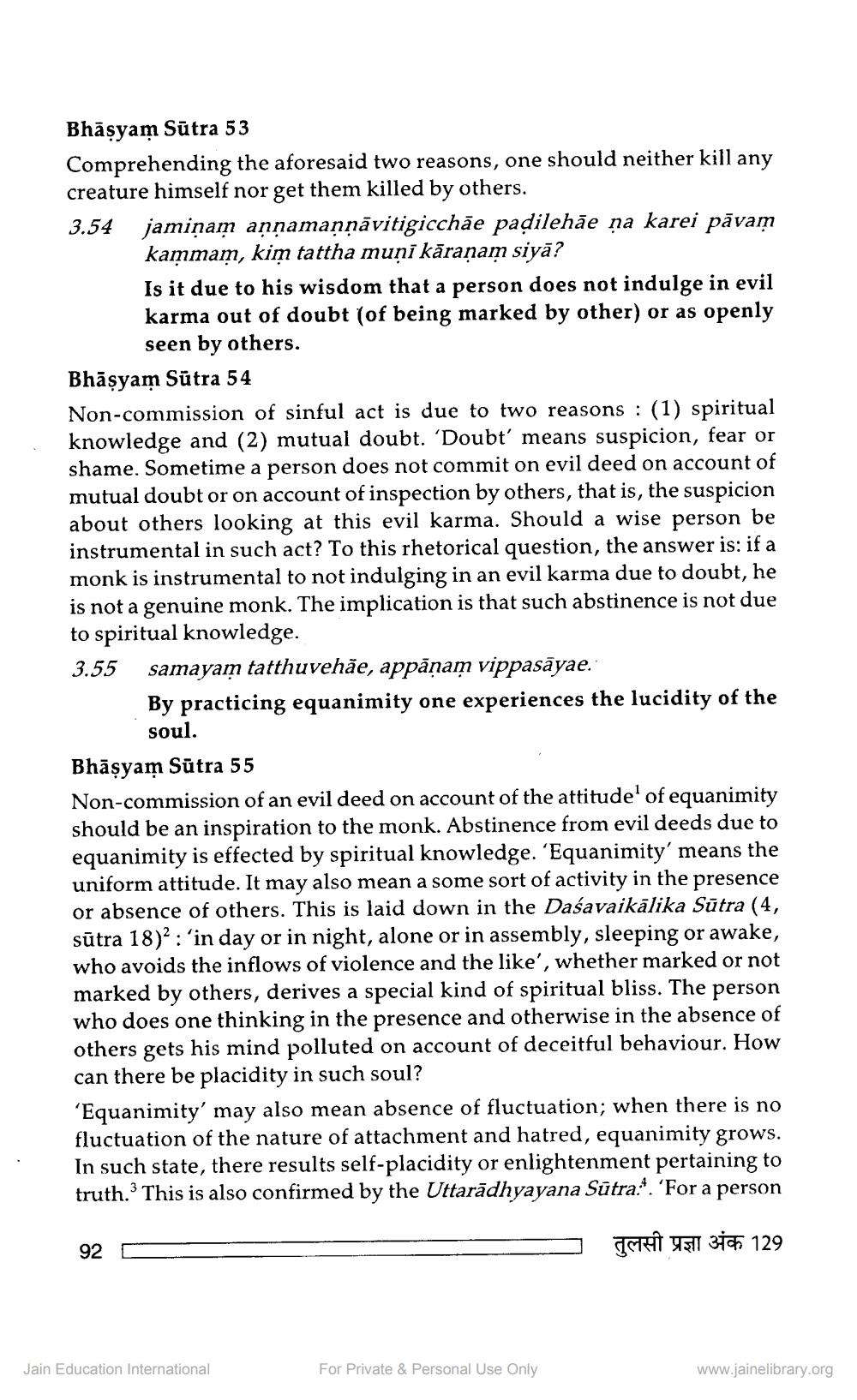________________
Bhāsyam Sutra 53 Comprehending the aforesaid two reasons, one should neither kill any creature himself nor get them killed by others. 3.54 jamiņam aņņamaņņāvitigicchāe pațilehāe na karei pāvam
kammam, kim tattha muņi kāraṇam siyā? Is it due to his wisdom that a person does not indulge in evil karma out of doubt (of being marked by other) or as openly
seen by others. Bhāsyam Sūtra 54 Non-commission of sinful act is due to two reasons : (1) spiritual knowledge and (2) mutual doubt. 'Doubt' means suspicion, fear or shame. Sometime a person does not commit on evil deed on account of mutual doubt or on account of inspection by others, that is, the suspicion about others looking at this evil karma. Should a wise person be instrumental in such act? To this rhetorical question, the answer is: if a monk is instrumental to not indulging in an evil karma due to doubt, he is not a genuine monk. The implication is that such abstinence is not due to spiritual knowledge. 3.55 samayam tatthuvehãe, appāņam vippasāyae.
By practicing equanimity one experiences the lucidity of the
soul. Bhāsam Sutra 55 Non-commission of an evil deed on account of the attitude of equanimity should be an inspiration to the monk. Abstinence from evil deeds due to equanimity is effected by spiritual knowledge. 'Equanimity' means the uniform attitude. It may also mean a some sort of activity in the presence or absence of others. This is laid down in the Daśavaikālika Sūtra (4, sūtra 18)2 : 'in day or in night, alone or in assembly, sleeping or awake, who avoids the inflows of violence and the like', whether marked or not marked by others, derives a special kind of spiritual bliss. The person who does one thinking in the presence and otherwise in the absence of others gets his mind polluted on account of deceitful behaviour. How can there be placidity in such soul? 'Equanimity' may also mean absence of fluctuation; when there is no fluctuation of the nature of attachment and hatred, equanimity grows. In such state, there results self-placidity or enlightenment pertaining to truth. This is also confirmed by the Uttarādhyayana Sūtra:*. 'For a person
92
C
TARE 4511 3106 129
Jain Education International
For Private & Personal Use Only
www.jainelibrary.org




